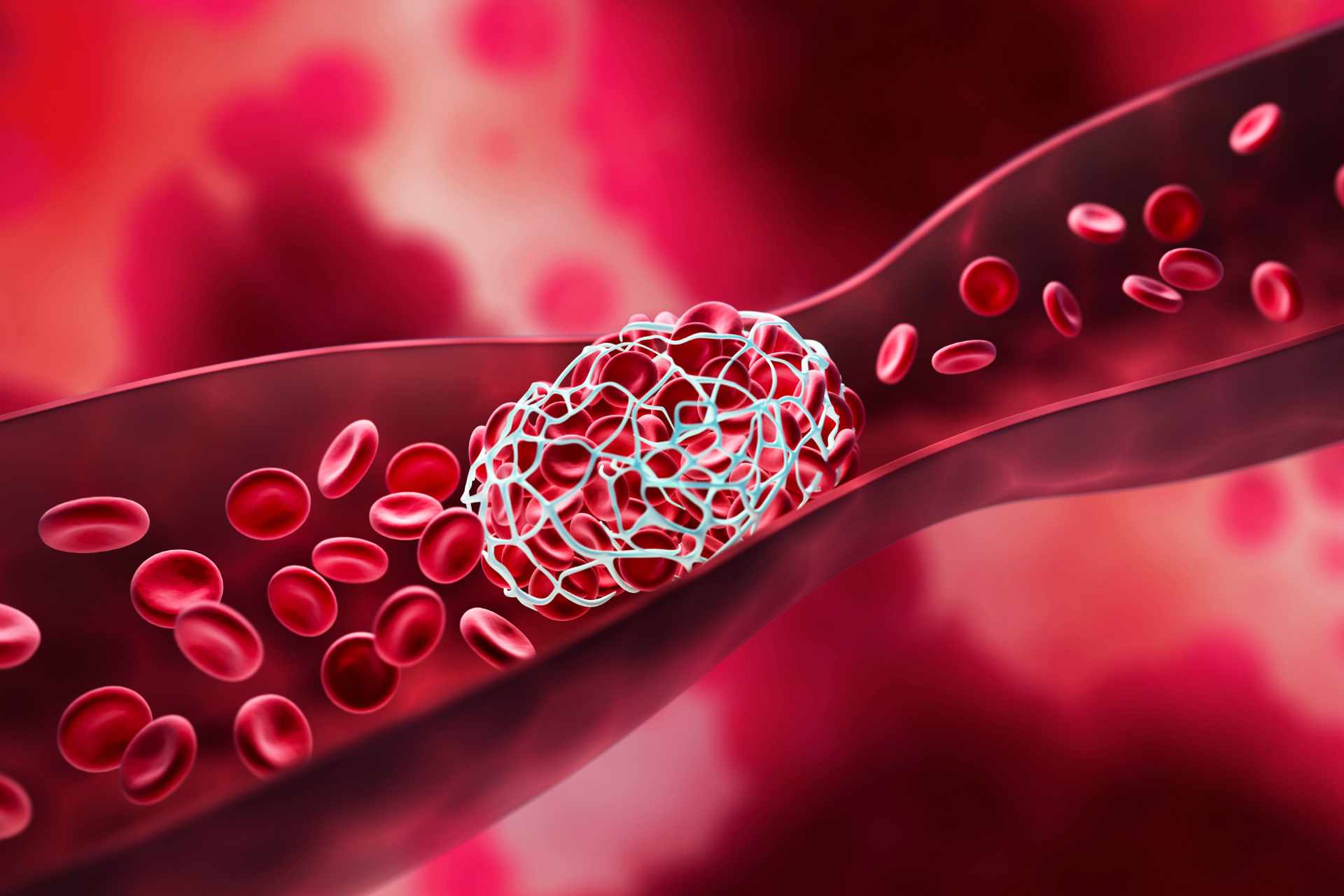What is already known
Thrombosis — the formation of blood clots within blood vessels — can cause serious illness, disability, and in some cases, death. Numerous conditions, including COVID-19 and metabolic disorders, can increase the risk of thrombosis. But although alterations of the gut microbiota have been associated with thrombosis, the underlying mechanisms remain unclear.
What this research adds
Researchers analyzed the fecal metabolites of 64 people with COVID-19, 12 individuals hospitalized without COVID-19 and 12 healthy people. They found that the gut microbial metabolite 2-methylbutyrylcarnitine (2MBC) accumulates in people with COVID-19 and those with major adverse cardiovascular events such as stroke and infarction. In mice, 2MBC promoted the formation of blood clots within blood vessels. Killing the gut microbiota with antibiotics prevented the increase in 2MBC levels and the heightened thrombotic risk after SARS-CoV-2 infection. Further experiments showed that 2MBC binds to a receptor called integrin α2β1 in platelets, resulting in increased platelet activation. Inhibiting the integrin α2β1 receptor was sufficient to reduce the negative effects of high 2MBC levels.
Conclusions
The findings suggest that 2MBC exacerbates the susceptibility to thrombosis and may explain why people with COVID-19 are at increased thrombotic risk.
Numerous conditions, including COVID-19 and metabolic disorders, can increase the risk of thrombosis — the formation of blood clots within blood vessels. New research reveals that the microbial metabolite 2-methylbutyrylcarnitine (2MBC) is accumulated in people with COVID-19.
The findings, published in Cell Metabolism, suggest that 2MBC exacerbates the susceptibility to thrombosis and may explain why people with COVID-19 are at increased thrombotic risk. “Our study provides mechanistic insight by implicating 2MBC as a metabolite that links gut microbiota dysbiosis to elevated thrombotic risk,” says study co-senior author Sifan Chen at Sun Yat-Sen University in Guangzhou, China.
Thrombosis can cause serious illness, disability, and in some cases, death. Past studies have shown that microbial metabolites can increase the activity of platelets, which are involved in the formation of blood clots, and boost the risk of cardiovascular diseases. However, the underlying mechanisms remain unclear.
To fill this knowledge gap, Chen and his colleagues analyzed the fecal metabolites of 64 people with COVID-19, 12 individuals hospitalized without COVID-19 and 12 healthy people.
Microbial metabolites
The researchers found that gut microbial metabolites that have been previously linked with thrombosis were not altered in people with COVID-19. However, 9 metabolites were higher in people with mild and severe COVID-19 than in healthy people and those without COVID-19. These metabolites did not decline after clearance of the SARS-CoV-2 virus.
Of the 9 metabolites, 2MBC was associated with clinical parameters of thrombotic cardiovascular diseases. 2MBC belongs to a class of compounds known as short branched chain acylcarnitines, which have been previously linked to obesity, diabetes and other metabolic disorders.
2MBC also accumulated in people with major adverse cardiovascular events such as stroke and infarction, the researchers found.
Thrombotic risk
In mice, 2MBC promoted the formation of blood clots within blood vessels. Killing the gut microbiota with antibiotics prevented the increase in 2MBC levels and the heightened thrombotic risk after SARS-CoV-2 infection.
Further experiments showed that 2MBC binds to a receptor called integrin α2β1 in platelets, resulting in increased platelet activation. In platelets, integrins play a crucial role in thrombus formation. Inhibiting the integrin α2β1 receptor was sufficient to reduce the negative effects of high 2MBC levels.
Although other targets besides integrin α2β1 may exist in cells, the results uncover a new biological function of 2MBC as a signaling molecule. What’s more, Chen says, the findings “unveiled a potential mechanism contributing to the increased thrombotic incidence in COVID-19.”











